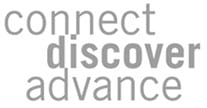November Education/Training Courses
Don’t Miss Two Important Education/Training Opportunities in November
Our mission at the American Society for Mohs Surgery is to promote excellence in patient care through member education. Our next two opportunities come up in November with the Basal Cell & Squamous Cell Cancer Dermatopathology course and the Fundamentals of Mohs Surgery course.
Here’s more information about both courses:
Basal Cell & Squamous Cell Cancer Dermatopathology:
November 3-4, 2020
This course has been developed for physicians already performing Mohs surgery and for those planning on introducing Mohs into their surgical practices. Doctors will gain valuable new insights into the treatment of skin cancers as a result of this “pure pathology” approach.
Content has been developed by board-certified dermatopathologists and will emphasize both basal and squamous cell carcinomas. The course will involve a mix of lecture and hands-on microscopic review of slide sets.
Course objectives
- Use microscopes to learn to differentiate between various basal and squamous cell carcinomas
- Learn to identify non-basal and squamous cell structures that may be present in the excised tissue
- Improve the accuracy of your histopathologic interpretation of these types of carcinomas
Here are the topics to be discussed in Basal Cell & Squamous Cell Cancer Dermatopathology:
- Bcc, SCC, and anatomic structures
- Common BCC and SCC mimics
- Inflammatory and reparative findings at biopsy sites
- Non-Mohs “Pure Pathology” approach
- Projecting microscope case presentation and discussion
Fundamentals of Mohs Surgery:
November 5-8, 2020
This course aims to enhance your patient care in your treatment of their skin cancers by providing a comprehensive overview of Mohs surgical technique and related laboratory processes. The subject matter is designed for dermatologists, dermatologists in training, and other specialists who desire additional exposure to basic Mohs concepts. The course will feature a microscope laboratory with over 500 Mohs cases for additional study of basal and squamous cell carcinomas, along with other tumors.
Since successful Mohs technique is interwoven interplay between the physician and the Mohs technician, this course is broken into concurrent sessions for physicians and for technicians.
Course objectives:
- Summarize technical skill and/or precision necessary in the execution of the Mohs technique.
- Explain the appropriate method(s) for surgical removal of tissue specimen, to aid in optimal histopathologic examination of deep and lateral margins./li>
- Identify important Mohs practice efficiencies, including use of specialized instrumentation and the management of patient flow and tissue specimen transfer.
- Recognize appropriate indications for Mohs surgery based on histologic subtype and anatomic location.
- Identify Mohs mapping techniques to ensure proper orientation of the specimen and correlate histologic findings with the surgical wound.
Here are the topics to be discussed in Fundamentals of Mohs Surgery:
- Basic Mohs technique
- Cryostat specimen quality
- Establishing a Mohs practice
- Histopathology of BCC, SCC, and unusual tumors
- Indications of Mohs surgery
- Intraneural and perineural cancer
- Lab director responsibilities and supervision
- Basic to advanced mapping
- Mohs surgical pearls
- Office set-up and patient flow considerations
- Post-Mohs radiation discussion
- Quality assurance issues
- Tissue staining protocols
- Video microscope case review
Fully accredited courses
Both of the courses have been planned and implemented in accordance with the accreditation requirements and policies of the Accreditation Council for Continuing Medical Education (ACCME).
- Basal Cell and Squamous Cell Cancer Dermatopathology can provide a maximum of 16 AMA PRA Category 1 credits.
- Fundamentals of Mohs Surgery can provide a maximum of 41.50 AMA PRA Category 1 credits. Mohs technicians participating in this course will receive medical education credit in the form of Contact Hours provided by the National Society for Histotechnology.
Don’t miss these opportunities to grow your Mohs practice
Mark November on your calendar for these two important Mohs surgery courses. For more details and links to the registration pages, click here.


